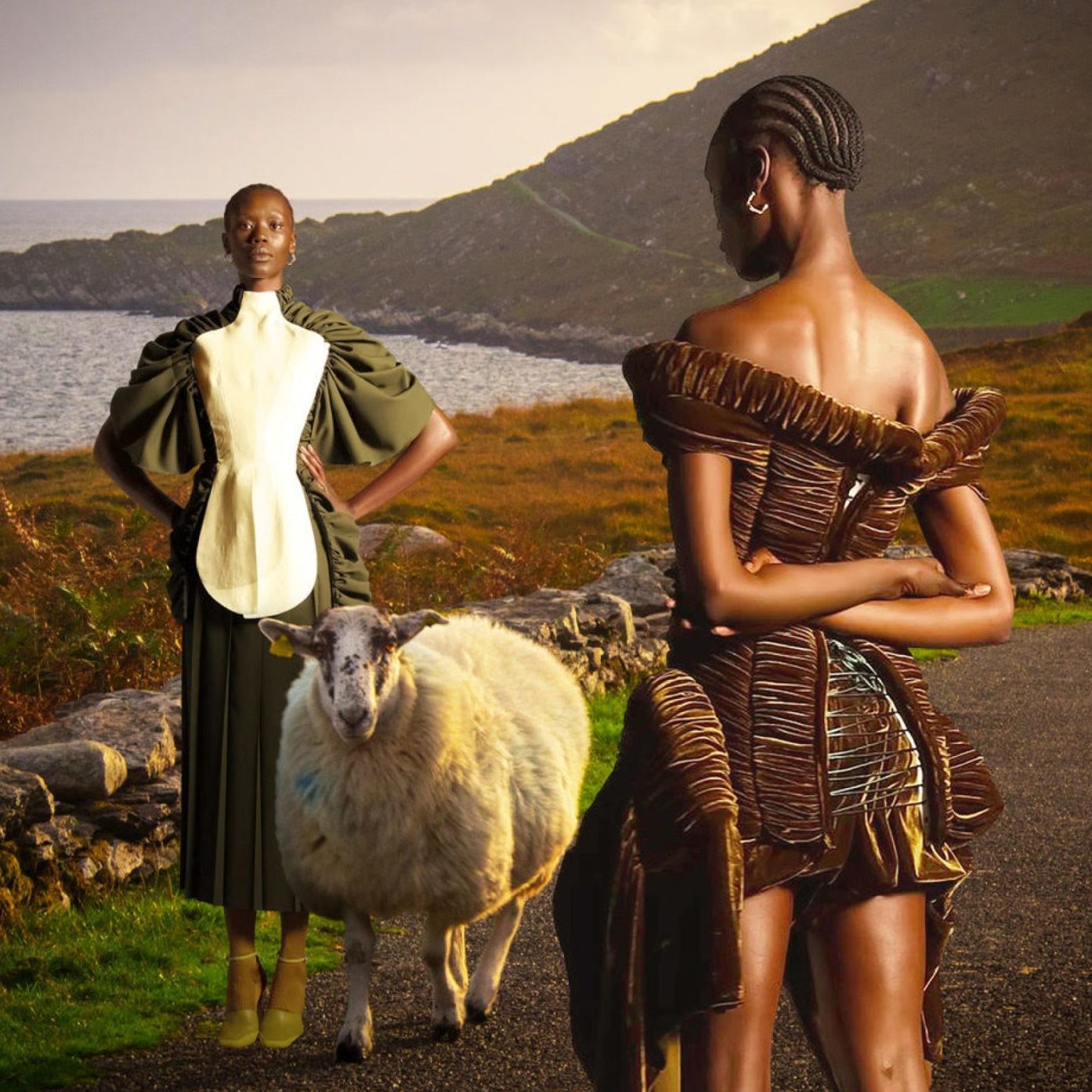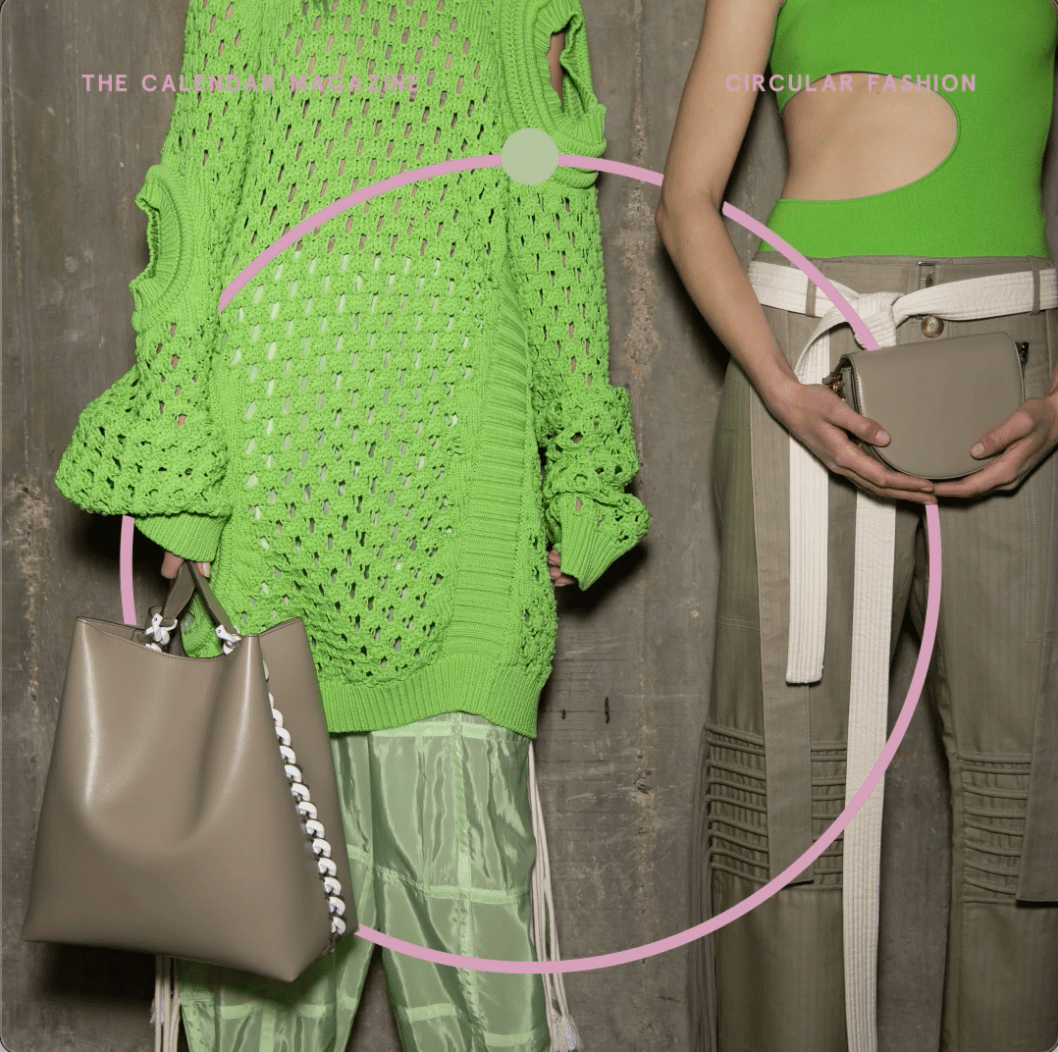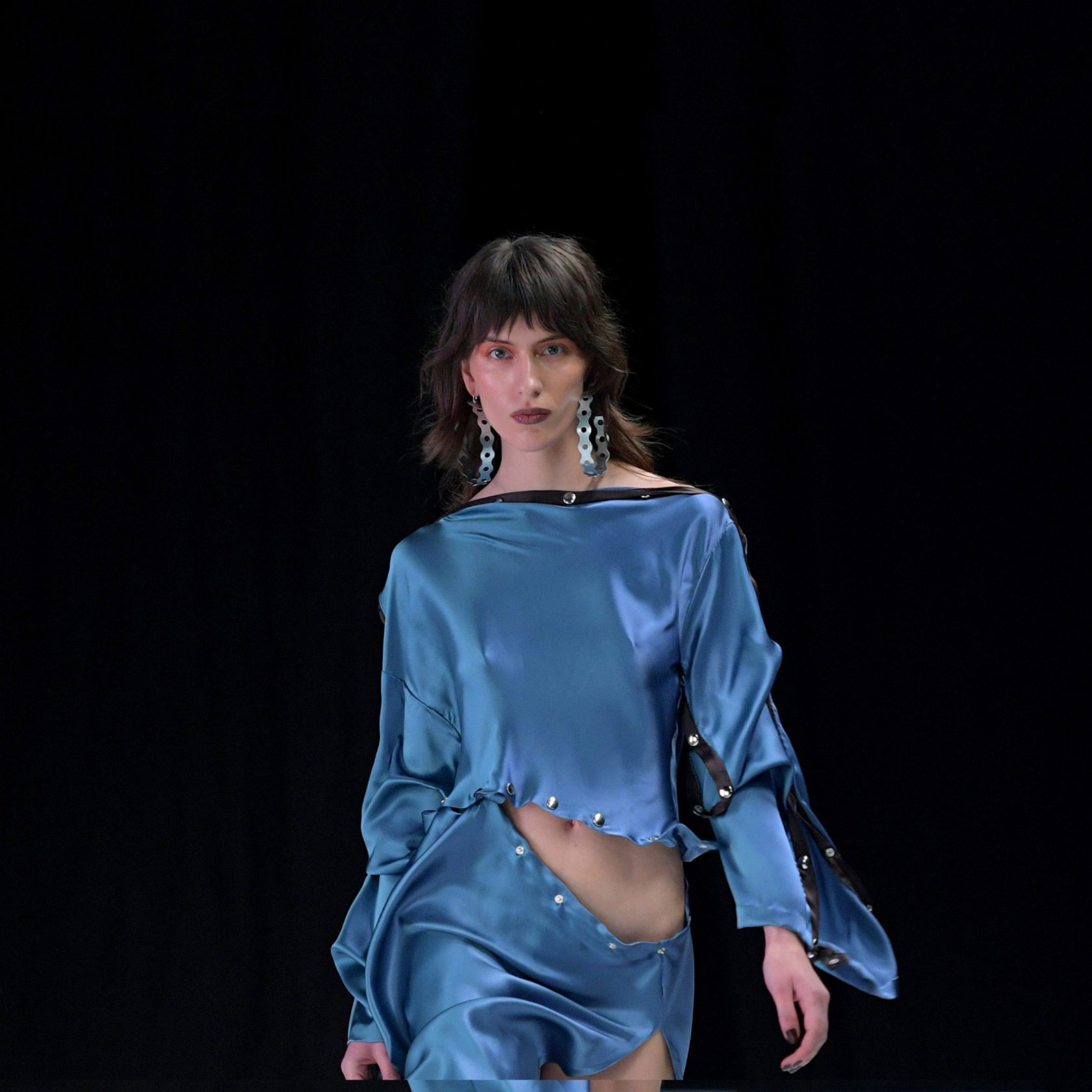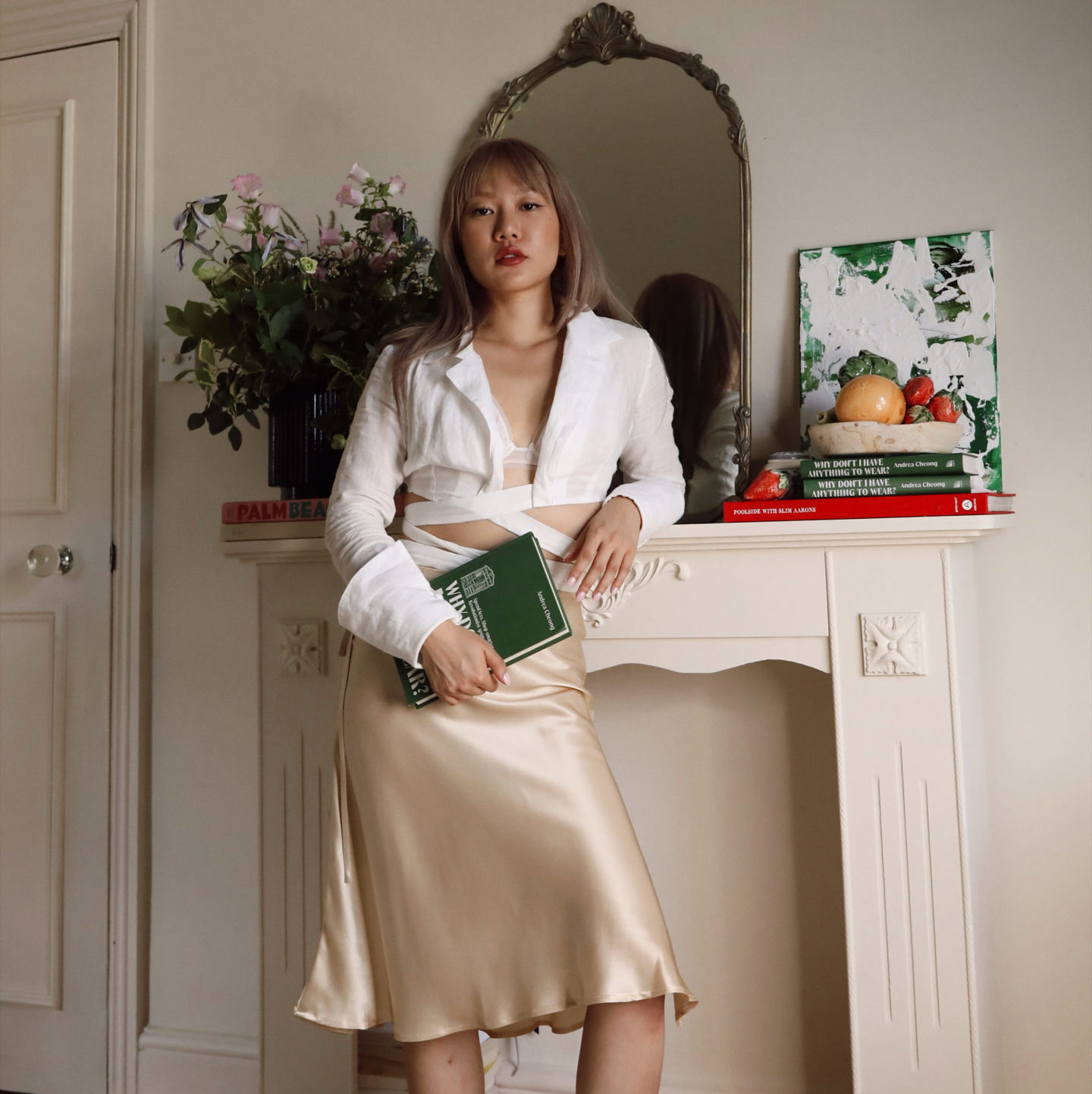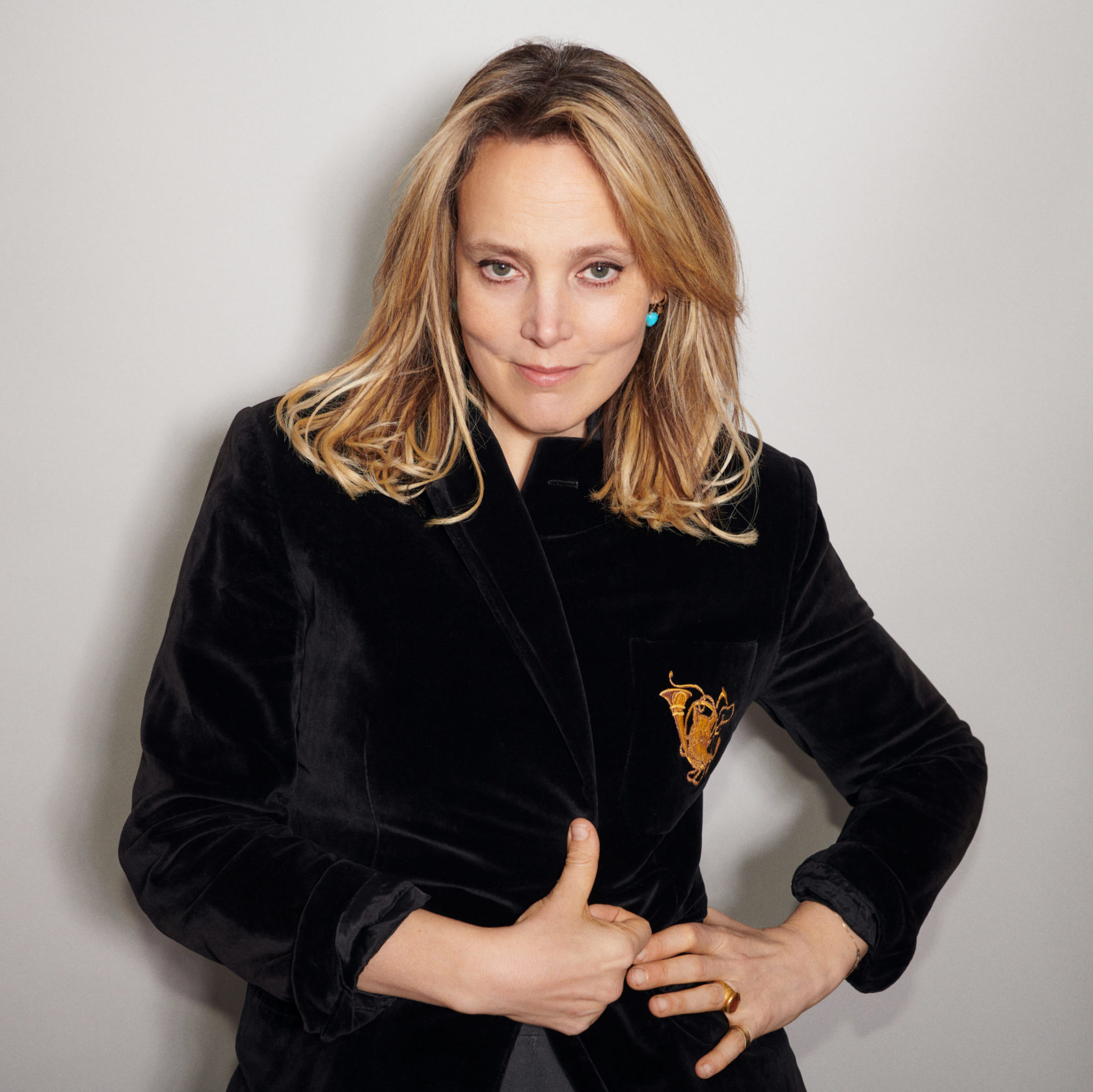April | Designer Focus
Edward Crutchley
The London-based designer on creating dresses that don’t fit through doors, his ambiguous approach to gender, and why sustainability is a meaningless word
Emma SellsThere’s a breathtaking dress from Edward Crutchley’s SS22 collection in the Victoria and Albert Museum’s recently opened exhibition, Fashioning Masculinities. An incredible 18th century-inspired extravaganza with a corseted bodice and huge paniered skirts, conjured in a rich, metallic brocade, it perfectly sums up what makes the label and its eponymous designer tick; drama-fuelled, perfectly considered silhouettes, exquisite textures, a tongue-in-cheek air and a joyfully ambiguous approach to gender. It marks a liberated change in Crutchley’s approach to designing, too, sparked in part by his move back to London at the beginning of 2021 after years of living in Paris and endless Eurostar commutes. “I think you’re always inspired and influenced by your environment,” he says, speaking from his new home-studio in the Barbican. “I think everything’s got a little bit more fashion and it has much more depth because I’m more settled and happier; everything’s sort of come together in a more emotional, cohesive way. I was really pleased with the outcome of those dresses and I think that was the beginning of me really exploring what I wanted to explore. Now I think, this is just beautiful. It has no relevance to the world in any shape or form, but I’m just going to do it anyway because it’s fab.”
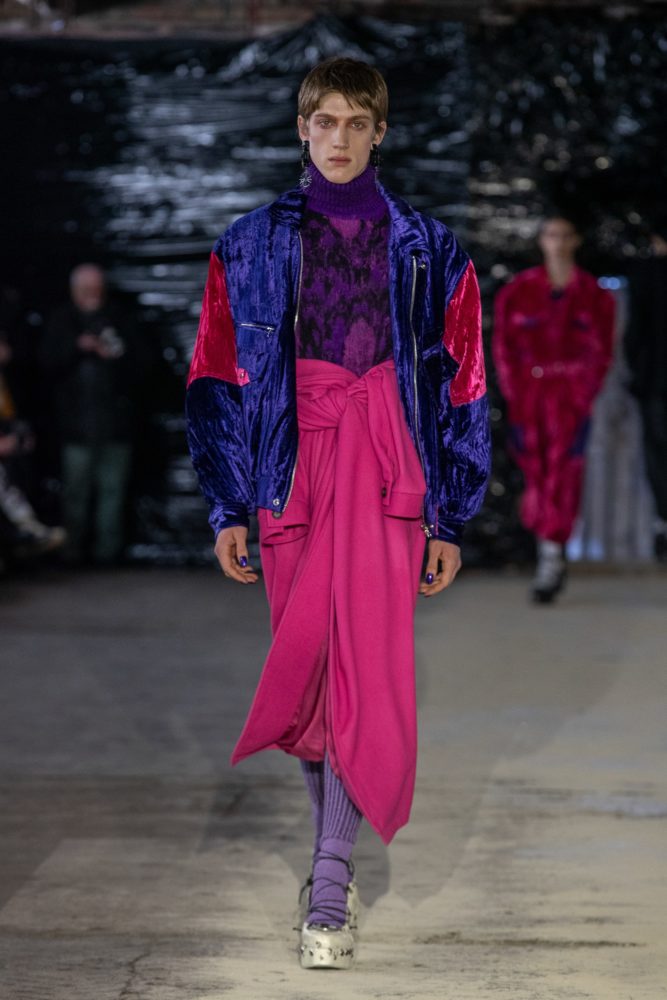
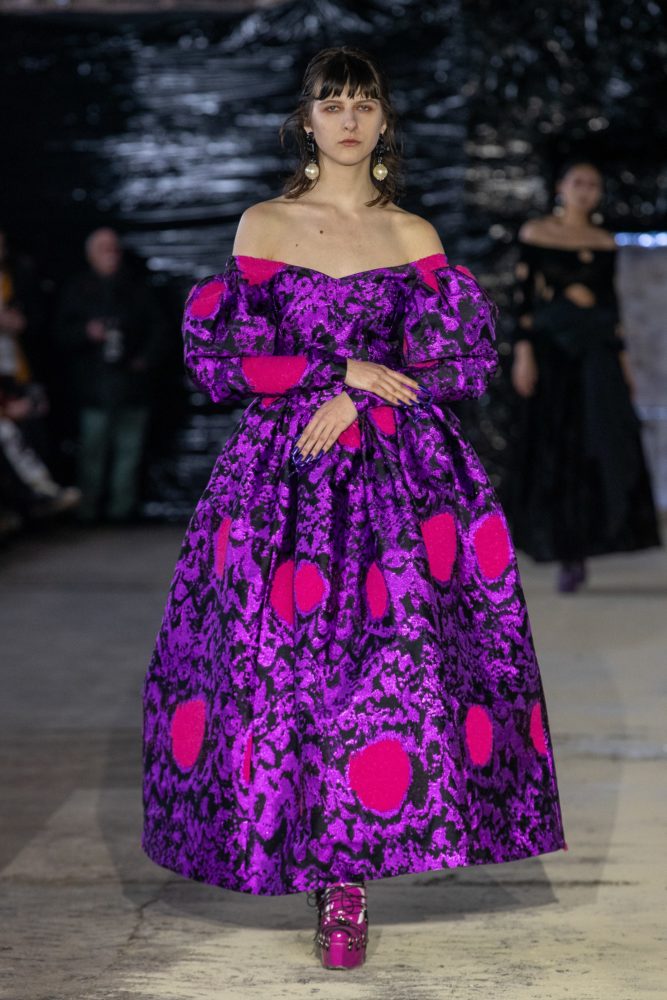
Images courtesy of Edward Crutchley
The first outfit Crutchley ever sketched out was similarly high-impact; an all-red, beret-topped ensemble that he designed for Barbie as a competition entry when he was nine. He didn’t seriously consider fashion, though, until his teens when he developed a shoe obsession. When there wasn’t a dedicated footwear design course that he could do, he studied womenswear at Central Saint Martins before landing jobs with Betty Jackson, Pringle of Scotland and a game-changing role at Louis Vuitton. He started his label in 2015 and showed as part of the Fashion East line-up, initially focusing on menswear until he clocked that stores were buying his pieces and selling them as womenswear, too, which just confirmed everything he already thought about gender in fashion. “For me, the idea of gendering clothing is a bit crazy, it’s all just clothes,” he says. “I mean, does a jacket have a gender? Of course, there are certain things that you have to think about in terms of fit but in general there isn’t a distinction between our menswear and womenswear.” His fans span age, demographic and nationality – he’s dressed everyone from footballers to Harley Street doctors – but there’s an undeniable spirit that ties them all together. “There’s a certain laissez faire attitude, a certain disrespect for the rules, but not in a way that you want to look like you’ve just climbed out of a bin,” he says. “I think they all care about their appearance but without that sort of primness that can go with that.”
"Every time that I work on something new, I try to find out what’s the narrative behind it and what makes it justifiable. That, to me, is working sustainably."
Edward Crutchley
Crutchley’s name used to be synonymous with textiles and, while he still loves to work with them, he’s made a decisive move away from print and pattern to focus on beautiful shapes, balancing out the more rigid consulting work he does on the side by finding relevance in pieces that are genuinely fun and exciting to design. His passion for craftsmanship is at the heart of everything he makes, though, which means that a responsible, considered approach comes naturally. “I think sustainability is a meaningless word that shouldn’t be part of a conversation,” he says. “It’s not a goal that can be achieved, it’s utterly impossible in every sector, so I don’t think that talking about it as a target is helpful. I think what we should be talking about is working in the most positive way that we can, and that’s something that I’ve always done. We make everything as locally as possible, most of our fabrics are sourced in the UK, we can trace our wool back to the flock that it was sheared from in Australia. Every time that I work on something new, I try to find out what’s the narrative behind it and what makes it justifiable. That, to me, is working sustainably.”
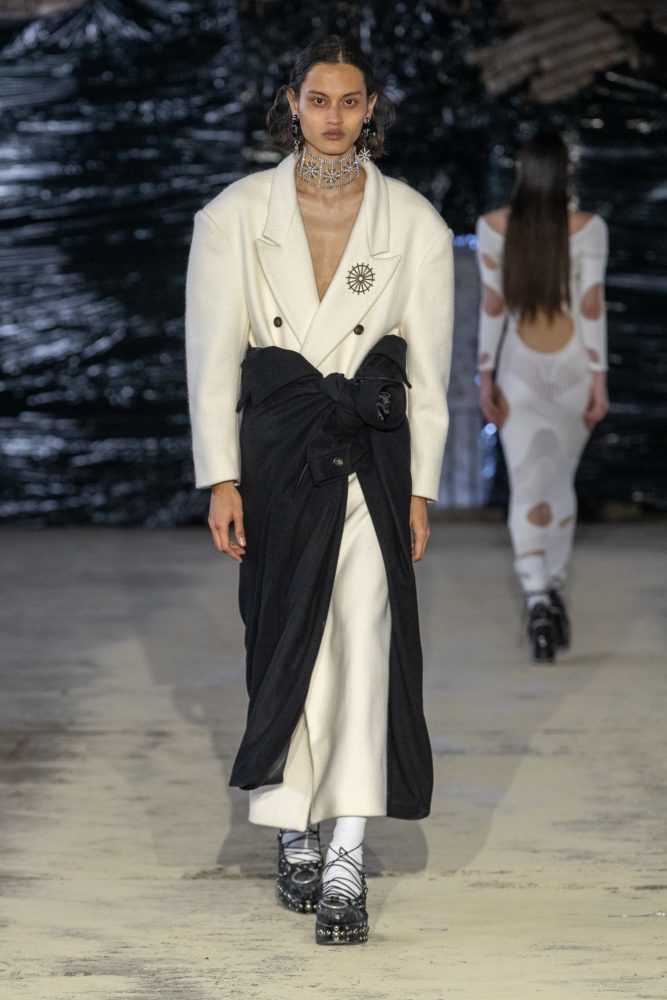
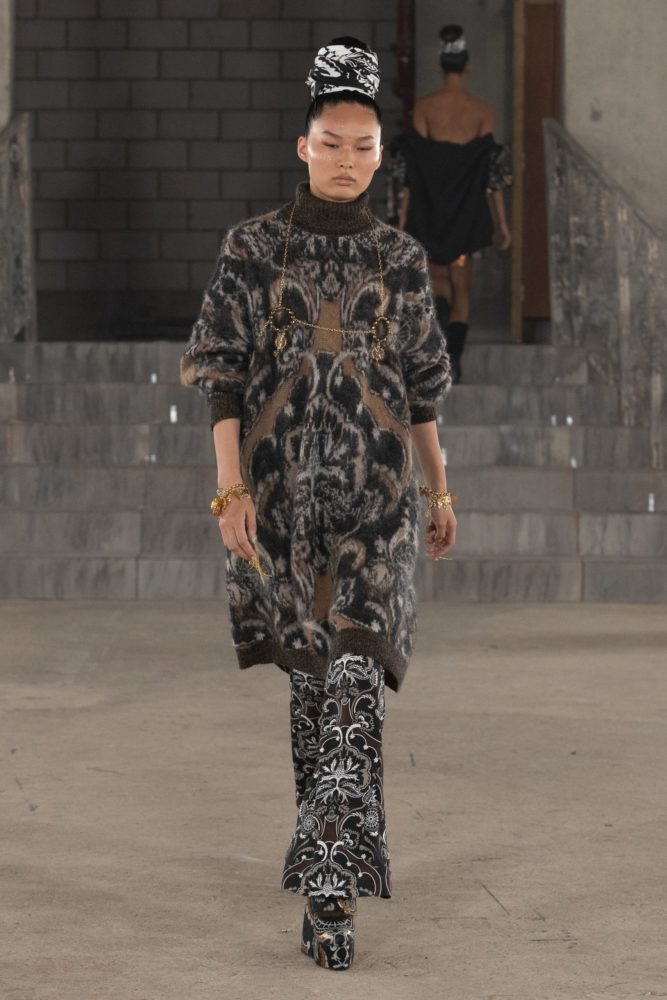
Images courtesy of Edward Crutchley by Chris Yates
With that in mind, he’s working on a line of fully traceable and ethical jersey basics made in partnership with the Fair Wear Foundation and has collaborated with vegan outerwear label Save The Duck on a recycled, 1970s-inspired capsule that’s allowed him to play to the strengths that don’t usually have an outlet within the label. “Don’t get me wrong, I care about products and I care about quality and I care about beautiful things, but at the same time I want to have some fun,” he says. “There’s no real agenda to what I do, although there is a commentary perhaps on gender, on society, a celebration of the outsider. But if I want to portray any message through what I do, it’s that it’s the way clothes make you feel that matters. That’s what’s most important.”
